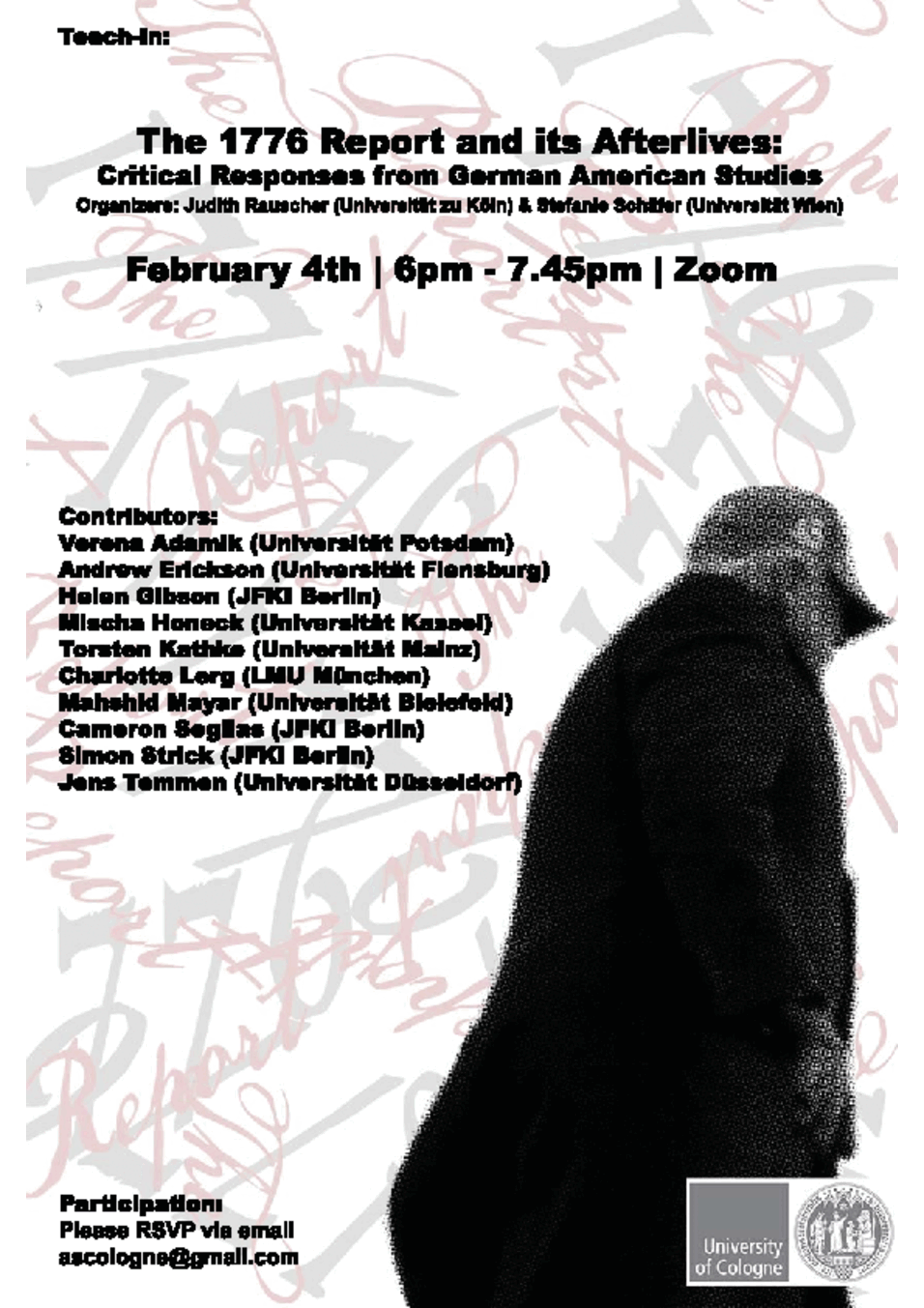Published on the eve of the Trump Presidency by "The President’s Advisory 1776 Commission," only days after militant white supremacists stormed the United States Capitol, the 1776 Report documents the Trump administration’s efforts at legacy building. The report talks back against the 1619 Project, which reframes the history of the United States by tracing the country’s origins back to the arrival of the first enslaved African peoples on North American shores and by exploring the impact of anti-Black racism on its social, economic, and political development ever since. The 1776 Report seeks to defend what it represents as “the facts of [the] nation’s founding” and to achieve what it calls “a restoration of American education,” peddling exceptionalist mythographies linked to the founding of the United States and the Declaration of Independence. In doing so it spells out Trump’s populist strategy to “animate [...] white settler-colonist attitudes and animosities” (Pease 2020, 25) to denigrate liberal institutions and protest movements such as Black Lives Matter.
The 1776 Report received sharp criticisms by historians and American Studies scholars across the world; it was publicly condemned by the American Historical Association (AHA) and the American Association of University Professors (AAUP). After President Biden issued an executive order dissolving the 1776 Commission on January 20, 2021, the report was removed from the White House website, turning it into a haunting presence in the United States cultural archive.
Join us for a teach-in that analyzes the 1776 Report to discuss the afterlives of Trumpism in the American public sphere and beyond. Contributors from German American Studies will comment on individual sections of the report and offer a scholarly response on its meanings for the American Studies classroom. To receive the invitation link, please send an email to: ascologne@gmail.com.
Sources:
Pease, Donald. “Donald Trump’s Settler-Colonist State (Fantasy): A New Era of Illiberal Hegemony?” Trump’s America. Political Culture and National Identity. Ed. Liam Kennedy. Edinburgh: Edinburgh University Press, 2020, 23-52.

